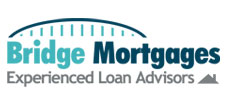| |
For a homebuyer, first-time or otherwise, the words no money down and 100 percent financing can be the difference in actually buying the home of your dreams or only wishing that you could. However, in the world of home buying there are quite a few different ways to secure a loan with 100 percent financing being just one of them. The other three most popular are the conventional, FHA and VA - all quite different, but each holding an allure depending on the buyer and his needs. The question, which one is right for you?
For example, an FHA loan is described by Direct Lender.com as "designed to make housing more affordable for first-time homebuyers and those with low to moderate income." Fixed and adjustable-rate loans of this type are available and are insured by the U.S. Department of Housing and Urban Development (HUD). Additionally, the standards to qualify are not as strict as the conventional loan, which is not guaranteed by the Federal government.
A VA loan on the other hand can be used for a home or condominium or you can build a home, purchase and improve a home or even buy a manufactured home. At Military.com it is noted that "VA-guaranteed loans are made by private lenders (such as banks, savings & loans, or mortgage companies) to eligible veterans. The VA underwrites loans for the purchase of foreclosed homes originally financed by a VA loan." While there is no maximum for a loan, it seems that lenders generally cap out at around $350,000.
Conventional loans usually require some money down as do FHA and often VA loans. However, there are the no money downs loans that can either be a first mortgage or a combination of a first and second mortgage, often referred to as a piggyback mortgage.
The advantages to 100 percent financing are "No cash needed for down payment, you don't need to liquidate your stocks and other investments and the borrower may want to finance as much as possible for tax deduction purposes," says Erate.com. The site goes on to note that a Fico Score of 620 is usually required and it normally requires the use of both a first and second mortgage.
Piggyback mortgages are also called 80/20 home loans and in many cases you will avoid paying PMI (Private Mortgage Insurance) when you go this route. The "80/20 refers to the percentage of the value of the home for each mortgage. The first loan is for 80% of the value of the home and the second loan is for 20% (down payment) of the value of the home," says Ditech.com. "Basically you pay for 80% of the home with your first mortgage and pay for 20% with your second mortgage."
|

